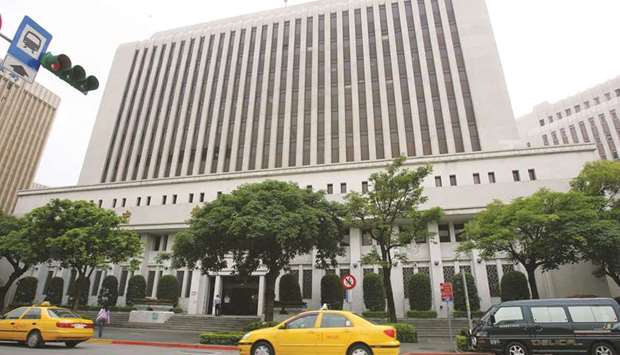Taiwan’s market watchers say currency intervention is back on their radar.
The Taiwan dollar barely budged against the greenback in the past month as foreigners pumped $1.4bn into stocks, and failed four times to hold intraday rallies beyond the key level of 30 per US dollar.
For traders and strategists, that’s a signal that the central bank is capping gains to support the export-dependent economy, a year after scaling back daily intervention amid criticism from the US Treasury Department.
“We’ve heard from traders that the central bank has been in the market during trading hours. You can’t see it in the price but traders can see it. They’re clearly defending the 30 level.” said Woods Chen, chief economist at Yuanta Securities Investment Consulting. “The central bank will defend the Taiwan dollar for a while, but it can’t defend it forever.” Harry Yen, the head of the central bank’s department of foreign exchange, said at a Monday press briefing that the level of the currency is determined by market forces and that the central bank hasn’t changed its policy of maintaining market order and currency stability.
“As long as foreign capital is being brought in to buy equities, we can’t say no,” he said. “We welcome it all. We hope it’s being used to buy equities.”
Buoyed by five straight months of inflows, the benchmark Taiex index closed above 10,000 for the first time in 17 years on May 11.
Foreigners invested $8.7bn in Apple Inc suppliers and other Taipei-listed firms this year, the most among Asian markets tracked by Bloomberg.
Taiwan’s foreign-exchange policy has been a contentious issue, earning it a place on the Treasury Department’s currency manipulation watch list last year.
Of the three criteria used to decide if countries are being unfair - having a trade surplus with the US above $20bn; having a current-account surplus of more than 3% of gross domestic product; and repeatedly depreciating its currency by buying foreign assets equivalent to 2% of output over the year - Taiwan failed only one this year.
While US officials said in their latest report that the central bank had reduced its intervention, they left Taiwan on the list.
Taiwan’s foreign reserves rose by $1.8bn to a record $440.3bn in May, according to data released this week. For Tim Condon, ING Group NV’s head of Asia research, that signals the central bank bought US dollars to slow the local currency’s rally. Over the past two weeks, it has held near NT$30.1 to the dollar, while a gauge of expected price swings has fallen to the lowest level in a year. The Taiwan dollar was little changed on Wednesday.
“The Taiwan dollar’s appreciation in May was the smallest of the year and associated with a chunky FX reserve accumulation,” he said. “The central bank is controlling the pace of appreciation, but not acting to reverse it.”
In its April semiannual report, the US Treasury Department said Taiwan has a track record of intervening in currency markets and urged the authorities to limit such actions to exceptional circumstances only.
The report also said Taiwan had bought an estimated net $10bn in foreign exchange in 2016, equalling about 1.8% of GDP.
“As long as it doesn’t go above 2%, the central bank still has room to move,” said Tony Chen, Taishin International Bank’s chief foreign-exchange strategist. He forecasts the Taiwan dollar to continue appreciating until October, driven by the relatively low valuations of Taiwanese stocks compared with the US and Europe.
Cliff Tan, Bank of Tokyo-Mitsubishi UFJ’s East Asian head of global markets research and the Taiwan dollar’s most accurate forecaster in the first quarter, said there are two reasons the currency hasn’t broken through the 30 mark.
“One is the market is too long the Taiwan dollar,” leaving limited room to add to positions, he said in a telephone interview. “The other is we can’t be sure if there is stealth intervention.”

Traffic streams past the headquarters of Taiwan Central Bank in Taipei. The apex bank will defend the Taiwan dollar for a while, but it can’t defend it forever, according to analysts.
